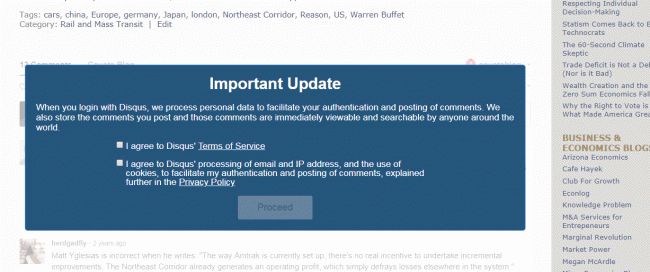Trump Likely to Impose New Tariffs Today: Is This Bad Economics or Madman Theory?
Frankly, I do not know how folks like Mark Perry and Don Boudreaux do it. They are able to keep going, day after day, year after year, refuting the same stupid anti-trade arguments over and over again. I don't have the patience or endurance. Long-time readers will remember I used to spend a lot of time on climate. But the debate never went anywhere. It was like Groundhog Day. At some point I just thought "I've said what I have to say, and now I am done" (though I actually do have a climate update in the works).
Anyway, Trump has put tariffs on Mexican and Canadian steel and aluminum and is poised to do so for European products soon, a tax that will ultimately be paid by every American consumer. Sigh. This is just so economically ignorant it is hard to take it seriously, yet here it is. In the name of 150,000 or so US steelworkers and a bare handful of obviously politically well-connected corporations, we are going to raise prices on essential raw materials that are consumed in one way or another by a huge number of American businesses and hundreds of millions of US consumers. Two or three years ago when US manufacturers are moving oversees for lower raw material costs, you will know why.
Republicans are really supposed to know better on this sort of thing, which to me is just proof #12,465 that our political parties represent tribal rather than consistent ideological differences. Republicans have twisted themselves in so many knots trying to support Trump while knowing better on tariffs that some have actually brought back a version of madman theory.
I am not entirely sure of the intellectual and historical origins of madman theory, but I have always ascribed it to Nixon and Kissinger.
President Richard Nixon and his national security adviser Henry Kissinger believed they could compel "the other side" to back down during crises in the Middle East and Vietnam by "push[ing] so many chips into the pot" that Nixon would seem 'crazy' enough to "go much further," according to newly declassified documents published today by the National Security Archive.
The documents include a 1972 Kissinger memorandum of conversation published today for the first time in which Kissinger explains to Defense Department official Gardner Tucker that Nixon's strategy was to make "the other side ... think we might be 'crazy' and might really go much further" — Nixon's Madman Theory notion of intimidating adversaries such as North Vietnam and the Soviet Union to bend them to Washington's will in diplomatic negotiations
Speaking of Kissinger, the new Conservative explanation of Trump trade (and foreign) policy also includes an element of old-time brinksmanship. I remember reading something in college from Kissinger, which I can't find now so maybe I have it wrong, but I would paraphrase it as, "it is very dangerous to go to the brink over an issue, but one can never make progress without going to the brink."
Some Conservatives are now arguing that Trump's protectionism is "good" protectionism because it is an opening move in a bargaining game where the US can make headway and perhaps get better rules all around. As such, Trump's seeming irrationality and willingness to ignore basic economics is a feature, not a bug, supporting the madman model of negotiation.
Ugh. This might perhaps all be reasonable strategy in a zero-sum game such as, say, negotiating shares of the assets in a bankruptcy settlement (something Trump is actually super experienced at). Trade, though, is not a zero-sum game. By definition, trades that are executed voluntarily have to help both parties, or else they would not be agreed to. As such, anything that reduces the amount of trade between people in two countries is guaranteed to be a net loss for BOTH groups of people. There are no winners.
